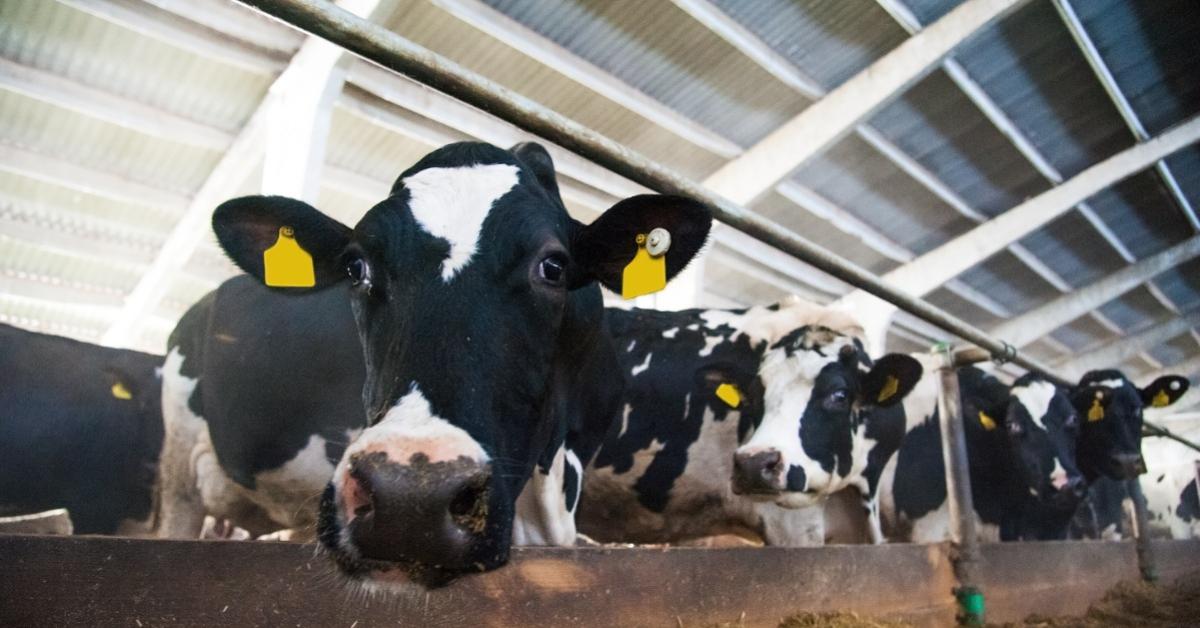
First, they came for the oil, now they’re coming for the cows. Environmentalists have no shame or sense and farmers around the world are, forget the pitchforks, “setting hay bales ablaze and dumping manure on motorways,” report April Roach, Tracy Withers, Jen Skerritt, and Agnieszka de Sousa for Bloomberg.
Never mind that food prices have spiked around the world. For instance, grocery prices are up 13 percent in the US this year. The Dutch government said it would buy out as many as three thousand of the biggest emitters (farmers) in a voluntary one-time offer. While the weather turns cold and gas supplies become scarce the green gang in Holland is setting aside €24.3 billion ($25.6 billion) to fund the transition. “Those who refuse will be forced out of business,” reports Bloomberg.
Bloomberg’s quartet of reporters doesn’t say what the government will do with the land once they seize it, but you can detect their point of view with this, “Intensive farming—and decades of official inaction—have devastated biodiversity in the Netherlands, forcing the government to impose drastic measures.”
“Devastated biodiversity?” This is food we’re talking about. Something humans require. Mother nature deals farmers enough bad hands, what with droughts, floods, fires, and pests. Now, the heavy hand of government believes it must get rid of cows because, well, they fart and urinate.
“From farm to fork, the food system generates about 31 percent of global greenhouse gas emissions,” the Bloomberg quartet explains. “Cows and sheep emit planet-warming methane simply by digesting food; their manure and urine are a source of nitrogen oxide which, in large volumes, throws ecosystems off kilter.”
Having millions of people go hungry sounds more “off kilter” to me. “If action isn’t taken fast, researchers estimate that food-related emissions alone would push the Earth past 1.5C of warming that world leaders set as a target in the 2015 Paris Agreement.” Oh no.
In heavily farmed New Zealand, where agricultural exports account for half the country’s exports, the government passed a law in hopes that net agricultural emissions will be reduced 24 per cent by 2050, with farmers being forced to cut emissions 10 percent in just three years, when the emissions levy comes into force.
“The so-called ‘fart tax’ will be reinvested in the industry through incentives, research and technology so New Zealand can reposition itself as a leader in ethically produced, higher-value food, a market that’s growing as consumers become more climate and health conscious,” Bloomberg reports.
Bryce McKenzie has reduced his herd by 50, but that’s not enough. “We don’t want a country planted in pine trees and then not be able to grow food,” says McKenzie. “We want food security for the future.”
Farms produce about a third of greenhouse gasses in Ireland and farmers are expected to cut emissions by a quarter, compared with three-quarters percent targets for electricity and by half for transport. In Canada, farmers expect to lose $8 billion in foregone output this decade to comply with government mandates. “We’re being asked to do something to benefit all of society yet we’re the ones left with the bill,” says Chuck Fossay, who farms with his brothers on 3,600 acres outside of Winnipeg that’ve been in the family since the early 1900s. “We have to do what we can, but it has to be achievable, and it has to be fair.”
Back in the Netherlands, that government’s issue with cow urine has politicians requiring farmers to slash emissions by as much as 70 percent. And the closer a farm is to one of the country’s 160 protected natural areas, the tighter the limits.
To meet government mandates, “livestock numbers must shrink by a third overall. If the government gets its way, the biggest polluters will be closed by this time next year.”
Dutch ecologists claim cow urine will kill all the trees, while farmers claim it’s an unwarranted government land grab. Caroline van der Plas, leader of the populist Farmer-Citizen Movement says farmers are “ordinary people but they feel treated like criminals. Everything farmers do is bad; poison sprayers, environmental polluters, mistreatment of animals.”
Sadly, ordinary grocery shoppers will blame the grocery store as food prices continue upward and environmentalists pat themselves on the back and are feted as heroes in the mainstream media.




